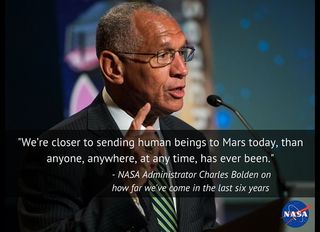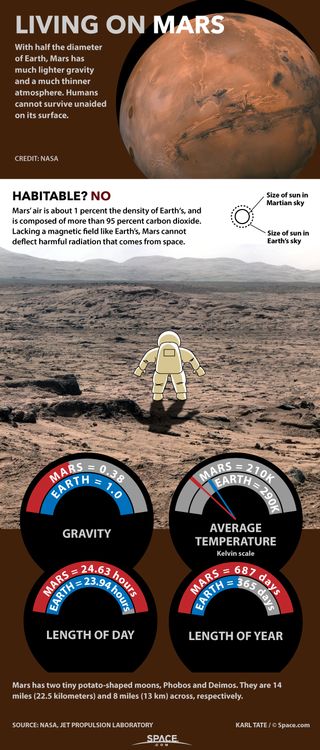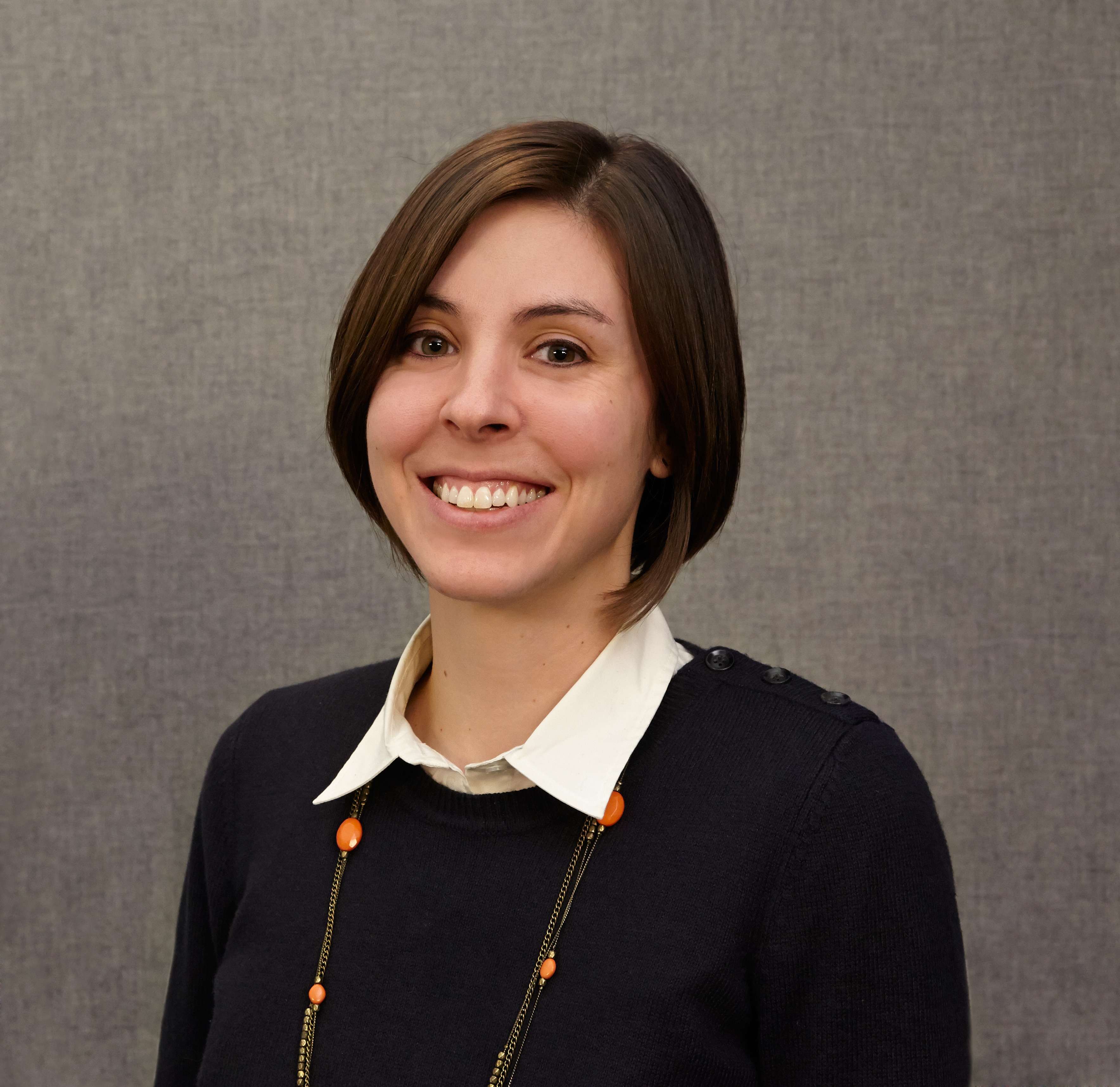'Mars Matters' for the Future of Space Exploration, NASA Chief Says

"Mars matters," was the central theme of a speech by NASA administrator and former astronaut Charles Bolden today (April 12) at the National Space Symposium, perhaps the largest international spaceflight meeting in the world.
Bolden noted that almost six years ago today, President Obama announced at the Kennedy Space Center that NASA should pursue a human mission to Mars. That speech is "what I consider one of the landmark speeches in the history of space science," Bolden said.
"Even though we here recognize why Mars matters, it's important every now and again to remind ourselves, so that we'll be more effective in reminding our friends and neighbors," Bolden said, before listing various reasons why a mission to Mars could help humanity. After each item, he asked the audience to repeat the phrase, "Mars matters."
During his speech, Bolden emphasized the challenges of spaceflight missions, and provided various examples of spaceflight challenges that were considered to be impossible to overcome in the years preceding their accomplishment.
"When Robert Goddard first started publishing his research and telling people about his belief that we'd someday be able to send a rocket all the way to the moon, the idea seemed so, well, 'out of this world' that people laughed at him. The press nicknamed him 'moon man.' Others called him 'moony' and 'moon mad,'" Bolden said. Robert Goddard was a pioneer of American rocketry and is the person for whom NASA's Goddard Spaceflight Center was named.

Bolden also discussed NASA's recent accomplishments that, he said, might have seemed unbelievable not long ago, including the agency's plan to have commercial spaceflight companies launch astronauts into space from American soil. Since the retirement of the space shuttle program, the only option for sending humans to space has been on board the Russian Soyuz capsule.
"So here we are six years later, and I don't know about you, but if you had told me back then that today I’d be talking to you after having recently welcomed Scott Kelly home from his year in space aboard the International Space Station — and by the way, that the Station had been recommended for extension not once but twice by the president and Congress, let’s just say I would have been quite the skeptic!" Bolden said.
Get the Space.com Newsletter
Breaking space news, the latest updates on rocket launches, skywatching events and more!
Bolden reiterated a claim he has made in past speeches that there is a "consensus starting to emerge in the scientific and policy communities" around NASA's "plan for sending American astronauts to Mars in the 2030s." However, a 2014 report cast serious doubt on the feasibility of NASA's current timeline for a human mission to Mars.
Much of the audience gave Bolden a standing ovation at the conclusion of his talk.
Earlier in the day, while speaking as part of a panel that included 12 other global government spaceflight leaders, Bolden said that many of the people on the panel would not be holding their current positions for much longer, and that he would likely be the first to depart his current position. The position of NASA administrator is appointed by the White House. With a new presidential administration coming in at the end of 2016, it is possible that a new administrator well be selected.
Follow Calla Cofield @callacofield. Follow us @Spacedotcom, Facebook and Google+. Original article on Space.com.
Join our Space Forums to keep talking space on the latest missions, night sky and more! And if you have a news tip, correction or comment, let us know at: community@space.com.

Calla Cofield joined Space.com's crew in October 2014. She enjoys writing about black holes, exploding stars, ripples in space-time, science in comic books, and all the mysteries of the cosmos. Prior to joining Space.com Calla worked as a freelance writer, with her work appearing in APS News, Symmetry magazine, Scientific American, Nature News, Physics World, and others. From 2010 to 2014 she was a producer for The Physics Central Podcast. Previously, Calla worked at the American Museum of Natural History in New York City (hands down the best office building ever) and SLAC National Accelerator Laboratory in California. Calla studied physics at the University of Massachusetts, Amherst and is originally from Sandy, Utah. In 2018, Calla left Space.com to join NASA's Jet Propulsion Laboratory media team where she oversees astronomy, physics, exoplanets and the Cold Atom Lab mission. She has been underground at three of the largest particle accelerators in the world and would really like to know what the heck dark matter is. Contact Calla via: E-Mail – Twitter
